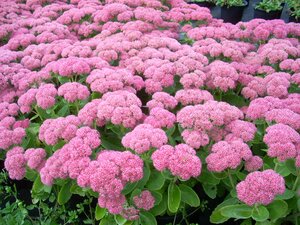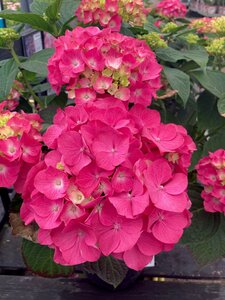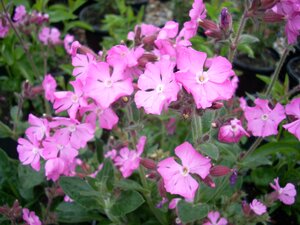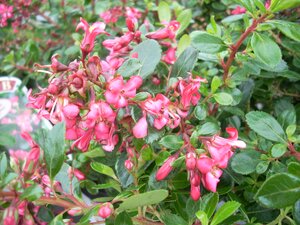Clematis Dr Ruppel
Why Buy Me?
- Early flowering variety
- Vigorous grower
- Large flowers with wavy edges
Growing Conditions
Light:
Full sun to partial shade. Performs best with at least 6 hours of sunlight per day. In hotter regions, light afternoon shade helps preserve flower colour and prevent fading.
Soil:
Moist, well-drained, fertile soil. Prefers loamy or sandy soils with neutral to slightly alkaline pH. Avoid poorly drained or heavy clay soils that can lead to root rot.
Exposure:
Ideal for sunny, sheltered positions on fences, trellises, pergolas, or walls. Clematis prefer their roots cool and shaded — mulch around the base or plant low-growing companions to protect root zone.
Drought Tolerance:
Moderate. Needs regular watering, especially during dry spells. Once established, tolerates short periods of drought, but consistent moisture promotes best flowering.
Cultivation & Care
Planting Time:
Plant in early spring or early autumn when soil is moist but workable. Autumn planting allows the root system to develop before winter.
Spacing:
Space 1–1.5 m (3–5 ft) apart if planting multiple clematis or near other climbers. Grows to a height of 2–3 m (6–10 ft) with adequate support.
Watering & Fertilization:
Water well during dry periods. Apply a high-potash, low-nitrogen fertilizer in early spring and again in midsummer after the first flush of blooms to encourage continued flowering.
Mulching & Pruning:
Mulch in spring to conserve moisture and suppress weeds.
Pruning group 2:
-
Light prune in late winter or early spring (February–March) to remove weak or dead stems.
-
After the first flush of flowers (late spring/early summer), a second light prune can encourage a second bloom in late summer.
-
Do not prune hard to the ground like Group 3 clematis.
Propagation:
Propagate by softwood or semi-ripe cuttings in late spring or summer. Layering is also effective. As a named cultivar, propagate vegetatively to retain true flower colour and form.
Seasonal Interest
Spring:
New green foliage emerges early. First flush of large flowers begins in late spring (May–June).
Summer:
Second flush of flowers often occurs in late summer (August–September) with proper care and light pruning. Flowers are large (15–20 cm), soft rose-pink with deep magenta central bars and creamy-yellow stamens.
Autumn:
Second flowering may continue into early autumn. Foliage begins to yellow and drop by late autumn.
Winter:
Deciduous. Dormant in winter with bare stems. Minimal structure interest.
Wildlife & Garden Use
Wildlife:
Flowers attract bees and other pollinating insects. Not especially significant for birds or other wildlife, but can provide seasonal cover.
Garden Use:
Excellent for training up trellises, arches, pergolas, obelisks, or garden walls. Ideal in cottage gardens, mixed borders, or formal beds with vertical features. Suitable for large containers with proper support and regular care.
Companion Plants:
Combines beautifully with climbing roses or other clematis with staggered bloom times. Pairs well with perennials like Nepeta, Campanula, Allium, Geranium, and Salvia. Pink blooms contrast beautifully with purple, blue, or white flowers.
Don’t miss out on the exceptional quality of the Clematis Dr Ruppel. It’s just a few clicks away when you order online, or you can stop by your nearest Thompson's Branch to pick one up and chat with our knowledgeable team.
-
EAN code9000000089
- Brand
- AspectSun or Partial Shade
- Flower Colourpink
- Width in ft6-7ft (180-210cm)
- Height in ft9-10ft (275-300cm)
- Pot size2 litre pot
Collect your Order from one of our sites!
Order and pay online and select the day you would like to collect your order from one of our four sites.
Local deliveries available, please order and pay online for delivery within 5 working days. See our terms & conditions.




